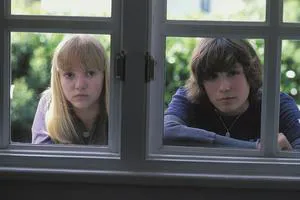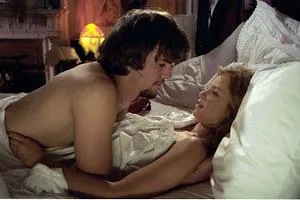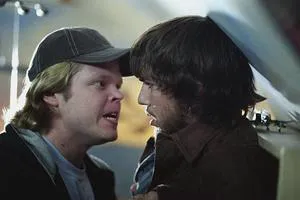The Butterfly Effect: A Surprisingly Thought-Provoking Thriller
Note: Under no circumstances should children be taken to see “The Butterfly Effect” due to a scene involving animal cruelty. However, aside from that, the film is surprisingly well-paced, clever, and profoundly impactful. Even Ashton Kutcher’s performance in the lead role is tolerable, thanks to the script, direction, and the fact that the character is portrayed by three different actors at various ages. The value lies not in Kutcher himself, but in the facial similarities between the actors.

At first glance, it appears to be a mystical, even fantastical, horror-tinged story. This impression isn’t unfounded: the writers, Eric Bress and J. Mackye Gruber, previously worked on “Final Destination 2,” the memory loss element echoes “Memento,” and the time travel aspect is reminiscent of the “Back to the Future” series. However, “The Butterfly Effect” ultimately transcends these influences, becoming an existential comedy akin to “Groundhog Day,” but with a more youthful appeal. This achievement is remarkable considering that Gruber and Bress spent years trying to sell the script, facing near-starvation, before deciding to produce and direct it themselves. Sometimes, you just know you’ve stumbled upon something special, something that has the potential to shine, and if you don’t sell yourself short, it truly shines.

Youthful Exaggeration and Existential Questions
While the film’s intensified “youthfulness” might prevent it from reaching the same level of acclaim as Alain Resnais’ recent European counterpart, “Smoking/No Smoking,” even the exaggerated elements work effectively. The protagonist’s life is packed with popular tropes: a broken family, a history of mental illness, a pedophile, and animal abuse. The memory loss device forces him to revisit forgotten moments to try and make things right, and thanks to the fantastical “time machine” (his childhood diary), the consequences are clear and immediate. Naturally, the past changes the future, which is also filled with hardships – prison, mental institutions, paralysis. However, since the “time machine” is merely a metaphor, these constant transformations only heighten the interest in the underlying existential question: How should one truly live? The answer is delivered quickly and entertainingly, making the film captivating.

Echoes of the Past: Frisch’s “Biography”
Half a century ago, Max Frisch explored a similar theme, albeit without the science fiction element, in his play “Biography.” In Frisch’s work, the protagonist is older and dying of cancer, but the struggles with his ex-wife are similar. “What if I hadn’t poured her champagne that night?” “What if I had kicked her out with everyone else?” “What if we had just talked and not spent the night?” Unfortunately, no matter how he rewrites the past, the man inevitably ends up tormenting the woman and ruining his own life. His deathbed remorse stems not from her, but from his inability to deny himself anything. Frisch’s play is an existential drama with a single solution: the woman stands up and leaves that fateful evening, once and for all.

A Modern Twist on an Existential Dilemma
“The Butterfly Effect” explores this concept, but in reverse, as the protagonist is not a villain. The film progresses further by suggesting that saying “To hell with it all” is only effective when it truly goes to hell. When you’ve confronted your past, whatever it may be, and paid the price if necessary. Of course, it’s best not to mess up in the first place, so you don’t have to pay. The film presents a scenario that almost achieves this. The unfortunate Kutcher is innocent. When he becomes paralyzed, even I chuckled. But the world around him is guilty, so everyone, without exception, must face their past. By anticipating the “don’t mess up” moment, the film allows Kutcher to resolve his past, transforming it into an existential comedy. Everything is settled in childhood? Good. Then he simply ceases to exist. No past, no future – a clean slate, freedom, and the opportunity to sing, whistle, and solve crossword puzzles. Live to your heart’s content, in the present.

Attention to Detail and Realistic Portrayal
The filmmakers treated their creation with utmost care, avoiding vulgarity in the depiction of everyday life and relationships. The mother, Kaylee, Lenny, Tommy, the delightful roommate, and the expressive cellmate are all well-developed characters. The depiction of drugs and sex is balanced. The visuals and editing are realistic, and the special effects are used sparingly. A significant amount of work went into this film, and it would be foolish not to appreciate it.